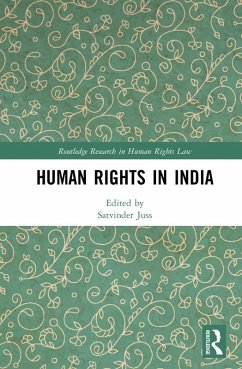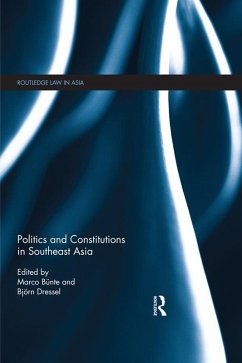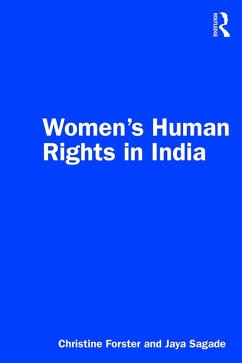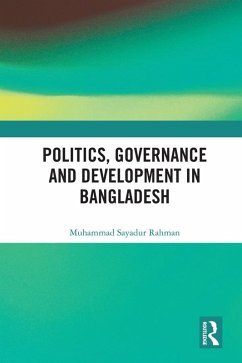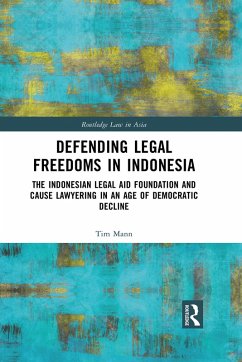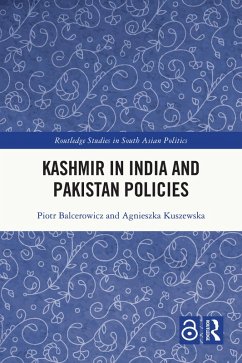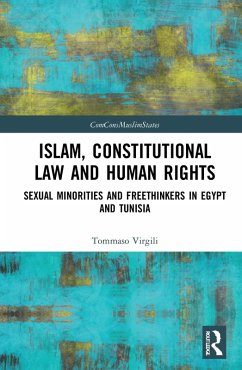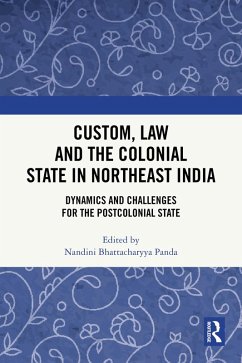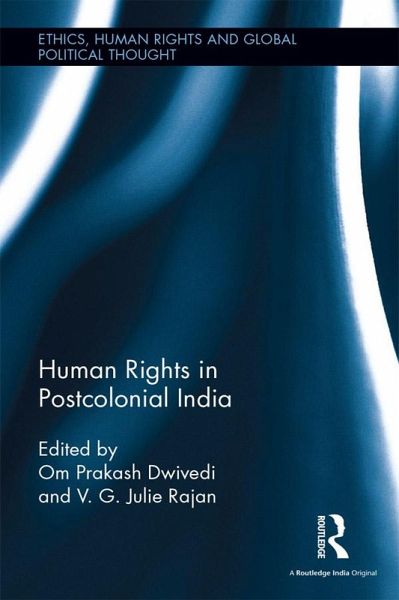
Human Rights in Postcolonial India (eBook, PDF)
Versandkostenfrei!
Sofort per Download lieferbar
47,95 €
inkl. MwSt.
Weitere Ausgaben:

PAYBACK Punkte
24 °P sammeln!
This volume looks at human rights in independent India through frameworks comparable to those in other postcolonial nations in the Global South. It examines wide-ranging issues that require immediate attention such as those related to disability, violence, torture, education, LGBT, neoliberalism, and social justice. The essays presented here explore the discourse surrounding human rights, and engage with aspects linked to the functioning of democracy, security and strategic matters, and terrorism, especially post 9/11. They also discuss cases connected with human rights violations in India and...
This volume looks at human rights in independent India through frameworks comparable to those in other postcolonial nations in the Global South. It examines wide-ranging issues that require immediate attention such as those related to disability, violence, torture, education, LGBT, neoliberalism, and social justice. The essays presented here explore the discourse surrounding human rights, and engage with aspects linked to the functioning of democracy, security and strategic matters, and terrorism, especially post 9/11. They also discuss cases connected with human rights violations in India and underline the need for a transparent approach and a more comprehensive perspective of India's human rights record.
Part of the series Ethics, Human Rights and Global Political Thought, the volume will be an important resource for academics, policy makers, civil society organisations, lawyers and those concerned with human rights. It will also be useful to scholars and researchers of Indian politics, law and sociology.
Part of the series Ethics, Human Rights and Global Political Thought, the volume will be an important resource for academics, policy makers, civil society organisations, lawyers and those concerned with human rights. It will also be useful to scholars and researchers of Indian politics, law and sociology.
Dieser Download kann aus rechtlichen Gründen nur mit Rechnungsadresse in A, B, BG, CY, CZ, D, DK, EW, E, FIN, F, GR, HR, H, IRL, I, LT, L, LR, M, NL, PL, P, R, S, SLO, SK ausgeliefert werden.




